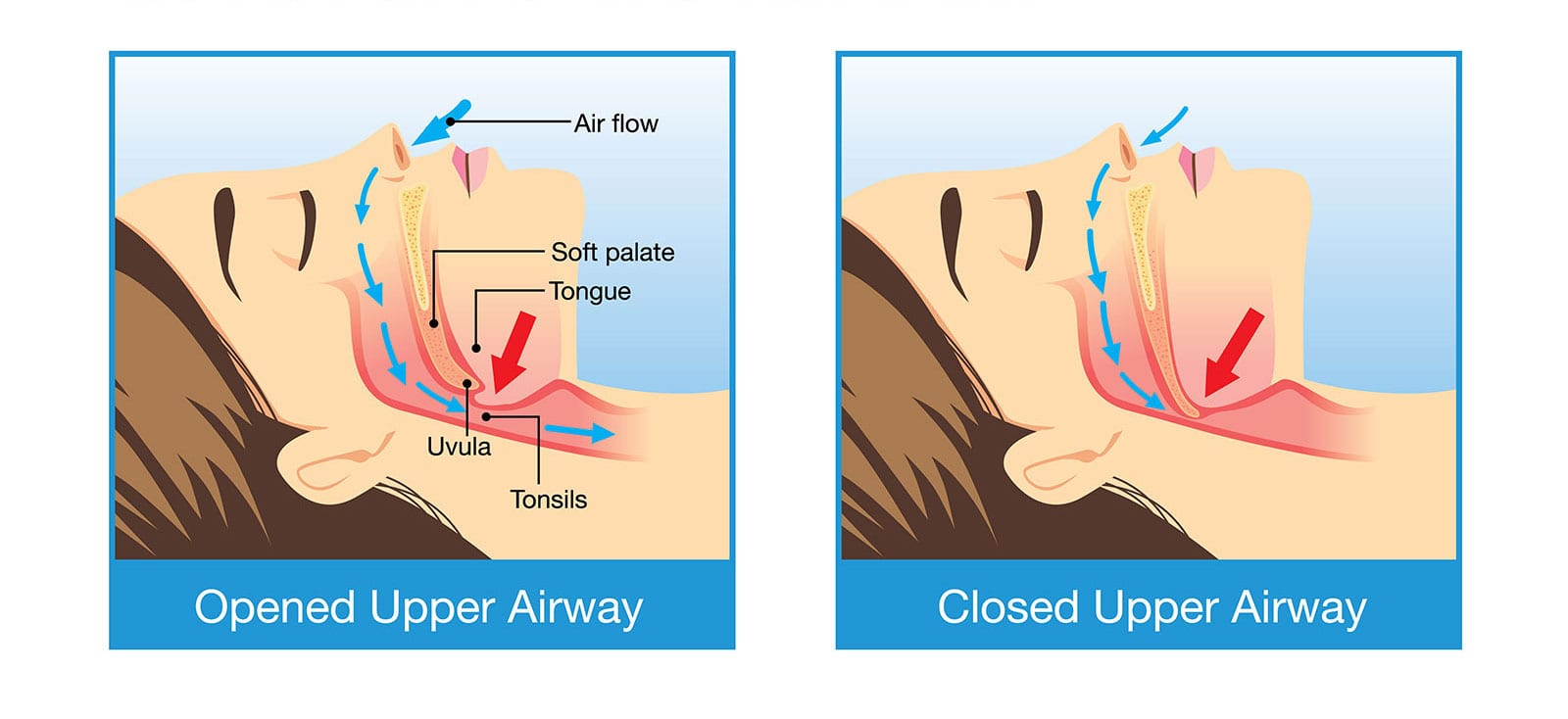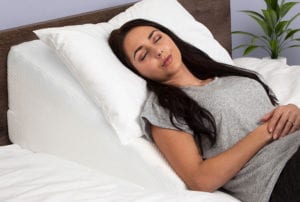The importance of getting a good night's sleep
For those people sleeping with a partner who snores, snoring is a very real issue causing endless sleepless nights. In a research study carried out by the American Academy of Otolaryngology, up to 45% of adult Americans snore – an estimated 90 million! The noise that is made during the ‘snore’ is actually a vibration from within the throat, usually involving the soft palate, tonsils and adenoids.

What Causes Snoring?
Before we start to talk about possible snoring causes, we need to first talk about how it happens in the first place. Generally speaking, when you slip into a deep sleep during the night, the muscles in the roof of your mouth and your throat tend to relax, which can quickly lead to a bout of snoring. You will often find that your instances of snoring increase as you get older. This is because the throat muscles become relaxed more easily, with snoring very often being the end result.



There are many risk factors that influence whether a person will snore, some temporary, and some more permanent. These may include:
- Being overweight – snoring is more common in people who are overweight or obese.
- Anatomy of the mouth – some people snore due to the shape or size of structures in their mouth or throat – e.g. large tonsils can restrict airways.
- Being a man – statistically men are more likely to snore than women.
- Alcohol – some people only snore after they have consumed alcohol. This is due to the alcohol relaxing the muscles in the throat and therefore being more susceptible to vibration.
- Family history – sometimes snoring or sleep apnea can be hereditary.
- Age – some people snore more as they get older.
- Pregnancy – some women find that they snore during pregnancy but did not before they became pregnant. It is thought this is linked to the fluid retention and weight gain that is associated with pregnancy.
- Sleep Position – some people find sleeping flat on their backs increases the likelihood of them snoring.
- Sleep Apnea – snoring can be one of the main symptoms of sleep apnea. If this is suspected medical advice should be taken.
How To Stop Snoring
If snoring is severe and has been an ongoing issue then medical advice should be sought. Possible medical treatments for snoring could involve:
- Laser surgery
- Dental mouth pieces
- Palatal implants
- CPAP machines



However if the snoring is not thought to be severe or if waiting for medical advice then there are a number of snoring remedies that work that could be tried first:
- Treat nasal congestion – any nasal congestion will restrict airways and therefore is more likely to cause vibrations when sleeping.
- Nasal strips – some people find applying a nasal strip to the bridge of the nose helps to keep the airway open. However some people find the presence of something on their skin when trying to sleep irritating.
- Avoid alcohol – avoid drinking alcohol for at least 3 hours before going to bed will prevent the over relaxation of throat muscles.
- Weight Loss – When weight loss is suggested as a remedy to snoring, it can be argued that thin people also snore. However if someone is carrying extra weight around their neck, this will reduce the diameter of the throat which in turn reduces airflow and is likely to cause snoring. Also if snoring has only occurred since a weight gain then there is a good chance that weight loss may help.
- Elevate the Head – this is one of the quickest ways to help eliminate or reduce snoring and has good scientific research behind it. As snoring is caused by a compression of the airways when muscles relax, if the airways (head and torso) are slightly elevated then this compression does not happen.
The concept of elevating the head has been investigated with regards to sleep apnea, anesthetic as well as snoring and so the body of evidence is wide ranging. The 2008 study by the National Center for Biotechnology Information, looking at collapsibility of airways, found that head position had a large influence on airway openings. In 2015 a study of 25 patients was carried out to look at the role of sleep position in the treatment of snoring and obstructive sleep apnea. On the first night patients used their normal pillows and the number of recording events were recorded. This was repeated the second night using a Head Positioning Pillow (HPP) and significantly fewer snoring events were recorded. A further study in 2017 looking at the effects of Head of Bed Elevation also reinforced previous results in finding a beneficial effect on reducing snoring.



By far the easiest way to elevate the bed (unless you prefer bricks under the bed legs!) is to buy a wedge pillow. A wedge pillow for snoring or sleep apnea provides the appropriate level of incline whilst providing the support the torso needs to be elevated and the comfort required to be able to fall asleep. There are a wide variety of wedge pillows available to purchase but the following factors should be considered:
- Support – is the pillow made from good quality foam that will not lose its firmness after 6 months of use?
- Memory foam topper – some wedge pillows have a memory foam top which provides a more comfortable surface to lie on whilst the support is provided by the stronger foam underneath.
- Air flow – a few wedge pillows have air flow systems as part of their design to alleviate any overheating issues that foam products can produce.
- Flexibility of height – when purchasing a wedge pillow (or anti snore pillow) for the first time it is difficult to know what height to purchase – they are available at heights from 6 inches to 12 inches. People usually have a preference as to the incline on which they sleep but how do you know what that is until you try. Or if recovering from an injury or surgery then the degree of incline would need to be reduced as recovery progresses. There are only a few adjustable pillows on the market.
At Zenesse Health we currently produce two wedge pillows. Both are made from a superior quality foam which gives great support to the torso while the egg crate 2” gel infused memory foam cushions to your body providing comforting support. This patented design allows for superior air flow around the body and so prevents the heat generation usually associated with memory foam. The LuxeLift Support Therapy Bed Wedge Pillow features an adjustable 12”/8” split height design, enabling the user to either sleep on a 12” or 8” support wedge pillow and therefore removing the uncertainty of which to purchase. This pillow is also perfect for injury or surgery recovery due to the incline being able to reduce as the healing process progresses. The CoziLift 8" Bed Wedge Pillow, shares all the benefits of the adjustable wedge but is a standard 8” fixed height. Both will provide the elevation required to help reduce snoring, are multi-purpose and can also be used as a bed sitting pillow and as a leg elevation pillow.
References:
- The National Center for Biotechnology Information
- The American Sleep Association
- WebMD.com
- Resperate.com
- Snore Magazine
